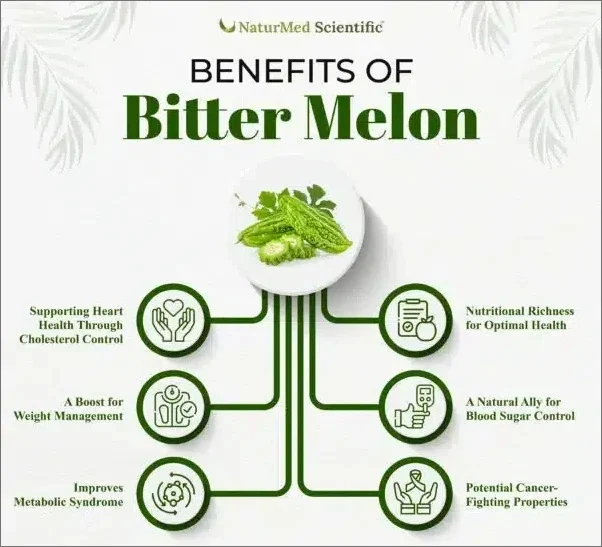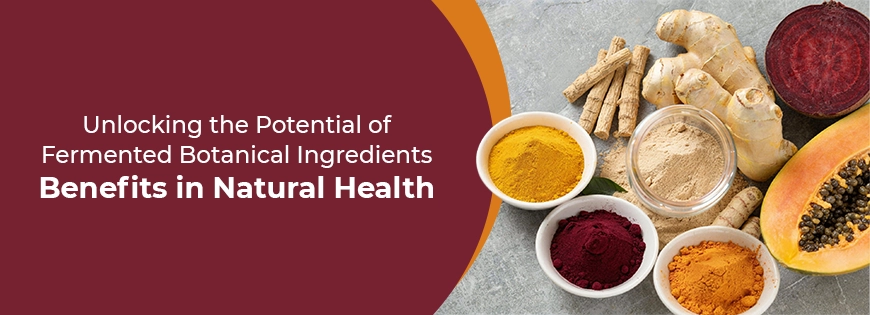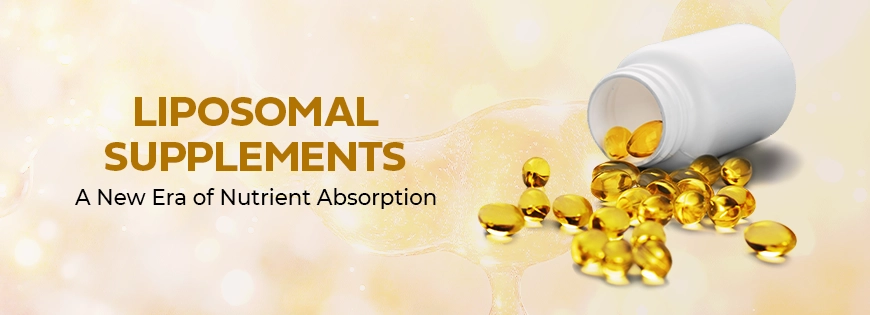Bitter melon, also called bitter gourd (Momordica charantia), is a tropical fruit revered for its sharp taste and medicinal properties. A staple in many Asian cuisines, this fruit is easily recognizable by its unique appearance: the Chinese variety is pale green with wart-like bumps, while the Indian type is narrower with jagged spikes.
Beyond its culinary uses, bitter melon offers a host of health benefits, backed by both traditional practices and modern science. Here’s a closer look at six of its most remarkable benefits, along with insights into how to incorporate it into your diet.

1. Nutritional Richness for Optimal Health
Bitter melon is a nutritional powerhouse packed with essential vitamins, minerals, and antioxidants.
Key Nutritional Highlights (per 100 grams):
- Vitamin C: Covers 99% of your daily requirements, aiding immunity, skin health, and wound healing.
- Vitamin A: Promotes good vision and healthy skin.
- Folate: Supports cell growth and development.
- Minerals: Contains potassium, zinc, and iron.
- Antioxidants: Includes catechin and chlorogenic acid, which protect cells from oxidative damage.
Moreover, it is low in calories yet rich in dietary fiber, fulfilling approximately 8% of daily fiber needs per 94-gram serving. These qualities make it a perfect addition to any balanced diet.
Also Read : Licorice Root
Takeaway
Bitter melon is brimming with nutrients that bolster overall health while being low in calories.
2. A Natural Ally for Blood Sugar Control
Bitter melon has long been valued for its ability to support healthy blood sugar levels. Recent studies have shed light on its effectiveness in managing diabetes:
- A 3-month clinical trial revealed that consuming 2,000 mg of bitter melon daily significantly reduced blood sugar levels and improved long-term glycemic control.
- Summary: A clinical trial assessed the effects of bitter melon on insulin secretion and sensitivity in type 2 diabetes (T2DM) patients. Over 12 weeks, 24 participants received either 2000 mg/day of bitter melon or a placebo.
Bitter melon administration significantly improved insulin secretion (including first-phase and total insulin secretion), reduced HbA1c, 2-hour glucose levels, glucose AUC, weight, BMI, fat percentage, and waist circumference. Insulin sensitivity, however, remained unchanged.
These findings suggest that bitter melon may aid in glycemic control and weight management in T2DM patients, offering a potential complementary therapy for managing diabetes-related conditions.
The fruit promotes better insulin secretion and enhances how tissues use sugar, helping stabilize glucose levels.
While results are promising, further large-scale studies are needed to confirm these findings in diverse populations.
Also Read: 7 Uses and Benefits of Thyme Oil
Takeaway
For those managing diabetes or prediabetes, bitter melon may serve as a valuable natural supplement to improve blood sugar control.
3. Potential Cancer-Fighting Properties
Emerging research highlights the potential of bitter melon in combating cancer:
- Laboratory Evidence: Test-tube studies found that bitter melon extract inhibited the growth of cancer cells in the stomach, colon, and lungs.
- Breast Cancer Research: Animal studies demonstrated that bitter melon not only slowed tumor growth but also encouraged cancer cell death.
Bitter melon (Momordica charantia) shows strong anticancer effects by triggering cell death (apoptosis) in cancer cells. Its extract activates caspase enzymes and increases the Bax/Bcl-2 ratio, leading to mitochondrial changes and DNA damage.
These processes effectively kill cancer cells in the stomach, colon, lungs, and throat. Bitter melon’s natural properties make it a promising option for cancer prevention and complementary therapy.
Also Read: Food’s Role as an Immunomodulator
However, these studies rely on concentrated extracts, and more human trials are needed to validate its effects in regular dietary amounts.
Takeaway
Bitter melon contains bioactive compounds with anti-cancer properties, though human studies are needed to substantiate these findings.
4. Supporting Heart Health Through Cholesterol Control
High cholesterol is a major contributor to heart disease, and bitter melon may play a role in keeping it in check.
- Animal Studies: Research indicates that bitter melon extract can lower LDL (bad) cholesterol levels.
- Human Study: Participants consuming water-soluble bitter melon extract showed improved cholesterol profiles.
- A study evaluated the impact of bitter melon extract on lipid levels in Japanese adults with dyslipidemia. This randomized, double-blind trial involved 43 participants who consumed either 100 mg of bitter melon extract or a placebo three times daily for 30 days.
Results showed a significant reduction in LDL cholesterol (P = 0.02) in the bitter melon group compared to the placebo, with no significant changes in body weight, BMI, blood pressure, total cholesterol, HDL cholesterol, triglycerides, or glucose. These findings suggest bitter melon extract could be a potential natural therapy for managing high LDL cholesterol and related conditions.
Despite these encouraging results, some studies have shown no significant effects, highlighting the need for further exploration.
Takeaway
Incorporating bitter melon into a heart-healthy diet may help manage cholesterol levels, but more evidence is needed.
5. A Boost for Weight Management
Bitter melon is an excellent addition to a weight-loss plan. It is:
- Low in Calories: A 100-gram serving contains just 21 calories.
- High in Fiber: Promotes a feeling of fullness, curbing hunger and reducing calorie intake.
- Digestive Aid: Bitter melon’s laxative properties can relieve constipation, aiding digestive health.
- By replacing higher-calorie ingredients with bitter melon, you can enjoy a nutrient-rich diet without compromising flavor.
Takeaway
Bitter melon shows promise in reducing body weight, fat deposition, and adipocyte dysfunction. Studies on animals reveal that bitter melon supplementation significantly decreases body weight, visceral fat, and lipid accumulation while enhancing fatty acid oxidation.
Bitter melon boosts mitochondrial activity (CPT-1, UCP1, UCP3), reduces fat-storing genes, blocks fat cell formation (PPARγ, SREBP), and promotes fat breakdown. It shows promise for managing obesity and metabolic issues, warranting further study.
6. Improves Metabolic Syndrome
A study on wild bitter gourd (WBG) supplementation in 42 Taiwanese adults with metabolic syndrome (MetS) showed promising results. Participants took 4.8 grams of WBG daily for three months, leading to a 19% reduction in MetS cases and significant decreases in waist circumference. The benefits lasted for one month after stopping supplementation. Insulin resistance improved slightly, and no major side effects were reported. This suggests WBG could help manage MetS and supports the need for more detailed research.
Potential Risks and Precautions
While bitter melon offers numerous health benefits, consuming it in large amounts or as a supplement may cause side effects such as:
- Abdominal discomfort or diarrhea.
- Potential interactions with blood sugar-lowering medications.
Pregnant women should avoid bitter melon, as its long-term safety has not been well-researched. Always consult a healthcare provider before introducing bitter melon into your diet, particularly if you have pre-existing conditions or are on medication.
Takeaway
Moderation is key when consuming bitter melon, especially for individuals with specific health conditions.
Bitter melon is a nutritional gem with a unique flavor, packed with vitamins, minerals, and bioactive compounds. Its potential benefits range from improved blood sugar control and cholesterol management to cancer prevention and weight loss support.
However, as with any superfood, balance is crucial. Speak to a healthcare professional before significantly increasing your intake, especially if you’re pregnant or managing a chronic condition.
When consumed responsibly, bitter melon can be a delicious and health-boosting addition to your meals, proving that sometimes, a little bitterness can go a long way in sweetening your health journey.
Disclaimer: The Statement has not been evaluated by the EFSA, KFDA or FDA. This product is not intended to diagnose, treat, cure, or prevent any disease. While the information provided is based on credible references, we do not make any specific claims or guarantees. It is important to consult with your healthcare advisor for personalized advice and guidance related to your health.
References:
- https://www.healthline.com/nutrition/bitter-melon
- https://www.liebertpub.com/doi/10.1089/jmf.2017.0114
- https://nutritionj.biomedcentral.com/articles/10.1186/1475-2891-11-4
- https://www.sciencedirect.com/science/article/pii/S2475299122120871
- https://pmc.ncbi.nlm.nih.gov/articles/PMC6250023/
- https://pmc.ncbi.nlm.nih.gov/articles/PMC7464160/
- https://pmc.ncbi.nlm.nih.gov/articles/PMC3471438/
- https://pmc.ncbi.nlm.nih.gov/articles/PMC1204764/
- https://pmc.ncbi.nlm.nih.gov/articles/PMC7826218/
- https://fdc.nal.usda.gov/food-search?query=&type=Foundation
- https://shorturl.at/mVD3b






